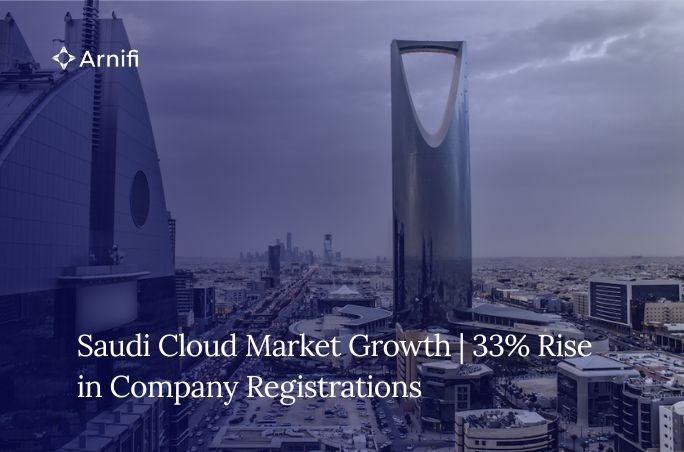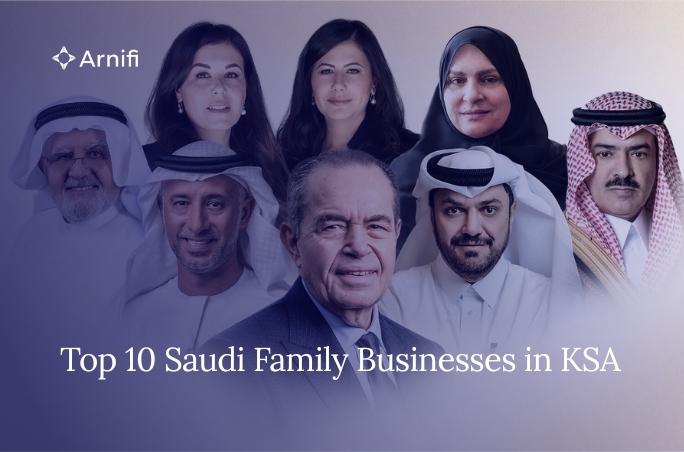Saudi Arabia: Analyzing the 2024 Article IV Mission
by Shethana Jul 30, 2024  13 MIN READ
13 MIN READ

In 2024, the IMF sent its Article IV Mission to Saudi Arabia to look closely at how the country’s economy is doing and how its policies are working. During this visit, the mission highlighted the significant achievements from the bold Vision 2030 reform plan but also suggested things that could be better.
The review noted that Saudi Arabia has a solid economic performance, which is supported by high domestic demand, careful macroeconomic decisions, and major changes, especially in handling finances and improving the business atmosphere.
Objectives and Scope of the Mission
The main goals of the Article IV Mission are to carefully check Saudi Arabia’s economic and financial stability and to offer suggestions that can help encourage sustainable and inclusive growth. This includes looking at things like macroeconomic indicators, fiscal and monetary policies, structural reforms, and updates from the external sector.
In addition to just looking at economic data, the mission aims to get a clearer picture of the country’s economic outlook in the global scene. By doing so, it assesses possible risks and problems while also proposing changes to policies that can help reduce those risks.
After completing the analysis, the mission will share its findings and suggestions in a report to the IMF’s Executive Board. This board represents all IMF member countries, including Saudi Arabia. As the board discusses the report, it will take into account the mission’s insights to guide its policy advice related to Saudi.
Key Participants and Their Roles
The Article IV Mission included a group of economists and experts from the International Monetary Fund (IMF). With the IMF team, they discussed much with high-ranking officials from the Saudi government, including people from the Saudi Ministry of Finance, the Saudi Central Bank (SAMA), and other important agencies.
About the engagement of the Saudi Ministry of Finance, it was very important since it is key in creating and applying fiscal policies, which is a main focus for the mission. Insight from SAMA, the bank that manages monetary policy and keeps the financial system stable, gave vital information about these important parts of the Saudi economy.
Through teamwork between the IMF mission and the Saudi authorities, they gained a deep and careful understanding of the country’s economic situation, challenges, and opportunities.
Economic Performance and Policies in Saudi Arabia
Saudi Arabia’s economy shows strong growth and resilience, thanks to both oil and non-oil sectors. Through efforts to diversify, the country has achieved noticeable growth in areas other than oil, even though oil revenue is still very important.
With inflation under control and unemployment at record lows, these changes highlight the success of the economic reforms. According to the IMF, these good trends are encouraging, and it stresses the need to keep this positive momentum going.
Review of Recent Economic Developments
Recent changes in the economy of Saudi Arabia show a country that is evolving and finding its way toward a more diverse and eco-friendly economy. From 2022 to 2023, there was a small slowdown in non-oil GDP growth, dropping from 5.3 percent to 3.8 percent. Still, the economy remains strong.
In terms of low unemployment, the record low rate is due to creating more than a million jobs, mostly in the private sector. Although oil revenues faced challenges due to Saudi Arabia’s OPEC+ commitments and voluntary cuts in oil production for 2023, the overall impact on GDP was minimal because of the strength of the non-oil sector.
On this positive path, GDP growth is expected to be around 4.5 percent in 2025. Thanks to continuing investments in different areas and the hope that oil output will rise, production is expected to gradually reach 10 mbpd in 2025.
Fiscal Policies and Their Impact on the Economy
Saudi Arabia is changing its financial plans as the country works to find a good balance between keeping money sustainable and helping its economy grow. With a focus on Vision 2030, the government is investing a lot in important projects, which means they need to take a close look at their financial strategies.
The IMF recognizes that these investments are important, but it suggests that a stronger approach to improving finances is needed. This approach should support fairness for future generations and make the country stronger against outside challenges.
The suggested actions include creating a solid plan for revenue that looks for ways to earn money beyond just oil, managing subsidies more wisely, and regularly checking spending to find places for possible savings. Through these actions, Saudi Arabia can improve its financial strength while working towards its ambitious growth goals.
Monetary Policies and Financial Sector Stability
Saudi Arabia’s monetary policies, guided by the Saudi Central Bank (SAMA), are important for maintaining financial stability in a changing global economy. By tying its currency to the US dollar, the country has created a reliable environment for investors.
With its active approach to managing money, SAMA works to keep its policy rates similar to those of the US Federal Reserve. This helps maintain stability and protects against risks from outside factors.
The IMF has praised the strong banking system in Saudi Arabia, mentioning its solid capital levels and low amounts of loans that aren’t being paid back. Also, the IMF highlights the need for ongoing awareness, especially regarding credit growth and possible risks from unexpected external events.
Progress Towards Saudi Vision 2030
Saudi Arabia is showing strong commitment to its Vision 2030 plan. Through this effort, the country is making significant progress by diversifying its economy and attracting foreign direct investment. In addition, non-oil sectors are being strengthened. These advancements are helping create a brighter future, lessening the country’s dependence on oil income and building a more adaptable and vibrant economy.
According to the IMF’s assessment, these efforts are recognized, showcasing the clear results of Vision 2030. Nevertheless, the path ahead continues, and ongoing commitment to reforms, improving human capital, and creating a suitable environment for private sector growth is crucial for Saudi Arabia to fully achieve its Vision 2030 goals.
Achievements in Diversification and Non-oil Growth
Saudi Arabia has really made great strides in changing its economy, which is a main goal of Vision 2030. Through various non-oil areas like tourism, infrastructure, and technology, the nation has successfully built growth.
In particular, take note of these achievements that show the country’s dedication to transforming its economy:
- Growth in Non-Oil Sectors: For instance, despite the unpredictable global economy, Saudi Arabia saw solid growth in its non-oil sectors.
- Rise of Tourism: Additionally, the nation has become a well-known tourist spot, with more visitors than before the pandemic, which helps a lot with the GDP.
- Infrastructure Development: Moreover, big investments in infrastructure projects, including new cities and transportation networks, have created jobs and made economic activity increase.
With these efforts, Saudi Arabia is building a more balanced and sustainable economy. This change is lessening its dependence on oil revenue and encouraging a more lively and diverse economy.
Advances in Social and Infrastructure Projects
Saudi Arabia does not just focus on economic diversification with Vision 2030. The country is also making big investments in social programs and infrastructure that improve the daily lives of its citizens. With the understanding that strong social support and modern infrastructure matter for lasting success, significant funding goes into education, healthcare, and housing.
At the same time, there is a push for ambitious infrastructure projects such as new cities, transportation systems, and renewable energy facilities, which are changing the country’s landscape and boosting economic development.
Overall, these projects are not just improving life for Saudi citizens. They are also placing Saudi Arabia on the map as a global leader in sustainability and innovation.
Challenges and Opportunities Ahead
While Saudi Arabia is working hard to achieve Vision 2030, it faces both challenges and opportunities at the same time. To make real progress, there is a need for ongoing efforts to diversify revenue sources beyond oil. Boosting private sector participation is also very important for long-term economic stability.
With this in mind, maintaining the progress of reforms and improving governance structures is essential. In addition, understanding and addressing any weaknesses in the financial sector is critical. Also, tackling youth unemployment is important, especially for women. This will require concentrated efforts on education, skill development, and creating a job market that includes everyone.
In spite of these obstacles, Saudi Arabia has a strong chance to use its strategic location, rich resources, and the goals of Vision 2030 to become a center for global investment. By taking in new ideas, encouraging entrepreneurship, and taking advantage of new opportunities in areas like renewable energy and technology, Saudi Arabia can overcome these difficulties and keep moving towards success and growth.
Sectoral Analysis and Recommendations
The IMF’s Article IV Mission looked closely at important areas in the Saudi Arabian economy. It found strengths and suggested ways to promote growth and sustainability. Specifically, it paid a lot of attention to the energy sector, the development of the private sector, and the dynamics of the labor market.
Through its analysis, the IMF highlighted how vital it is to keep reforming these areas. By ensuring they align with Vision 2030 goals, Saudi Arabia can tackle specific challenges, attract more investment, and apply focused policies. In doing so, significant economic potential can be unlocked, leading to inclusive and sustainable growth.
Energy Sector: Trends and Future Directions
Saudi Arabia’s energy sector is a key part of its economy and is currently facing important changes as the world moves towards cleaner energy. While the country is still one of the top oil exporters, there’s a clear understanding that it must change with the times.
From the IMF’s perspective, it’s vital for Saudi Arabia to keep investing in renewable energy, including solar and wind power. These efforts support the country’s goal of lowering carbon emissions and reaching net zero by 2060. Additionally, such moves help diversify its energy options and establish Saudi Arabia as a major player in the shift to clean energy globally.
Through embracing energy efficiency and promoting new ideas in the sector, Saudi Arabia can enhance the long-term success of its energy industry. By adjusting to these global trends and wisely positioning itself within the changing energy landscape, Saudi Arabia can uphold its leading status while playing a part in building a more sustainable energy future.
Private Sector Development and SME Support
A thriving private sector is essential to achieving the economic diversification goals of Vision 2030. The IMF’s assessment highlighted the importance of strengthening the private sector, particularly by supporting the growth and development of small and medium-sized enterprises (SMEs).
Access to finance remains a significant hurdle for many SMEs in Saudi Arabia. Streamlining regulations, improving access to capital, and providing targeted support programs can empower SMEs to thrive, fostering job creation, innovation, and economic growth.
The table below outlines additional steps to enhance the private sector:
| Area of Focus | Recommended Measures |
| Business Environment | Streamlining business registration processes |
| Reducing bureaucratic hurdles | |
| Enhancing contract enforcement mechanisms | |
| Access to Finance | Improving access to credit for SMEs |
| Developing venture capital and equity financing options | |
| **Human Capital ** | Investing in skills development and training programs |
| Attracting and retaining skilled talent |
By taking decisive steps to address these areas, the Saudi government can unlock substantial economic potential through a vibrant and competitive private sector.
Enhancing Labor Market and Employment Strategies
The Saudi government is taking active steps to improve the labor market because it sees how important employment is for the country’s economy. Through these actions, they want to reduce unemployment, especially for Saudi nationals, while also helping workers get the skills they need for a changing global economy.
According to the IMF, a well-rounded approach is needed, which involves putting money into education and training programs that match what the market needs, especially in fast-growing industries. Strengthening a labor market that invites more women and supports marginalized groups is key to using the nation’s talents effectively.
By making sure education and training lines up with what the market requires, promoting new business ideas, and building an inclusive and active labor market, Saudi Arabia can develop a workforce ready for future challenges and chances. This way, it will help build a stronger and more adaptable Saudi economy.
Conclusion
To sum up, the 2024 Article IV Mission in Saudi Arabia gives a detailed look at the country’s economic performance, policies, and advancement towards Vision 2030. Focusing on diversification, infrastructure projects, and social improvements, Saudi Arabia wants to tackle challenges and take advantage of chances for sustainable growth. The suggestions made for fiscal policies, private sector development, and labor market strategies are important for shaping the country’s economic future. While Saudi Arabia moves forward with Vision 2030, keeping track and making adjustments will be essential for adapting to the changing global economic landscape.
Frequently Asked Questions
What are the main goals of the Article IV Mission to Saudi Arabia?
The Article IV Mission from the IMF looks to evaluate the economic and financial stability in Saudi Arabia, which is an important member country. Through examining policies, finding areas that need improvement, and giving suggestions, the IMF helps Saudi Arabia work towards achieving sustainable and inclusive economic growth.
How does the IMF assess Saudi Arabia’s progress towards Vision 2030?
The IMF’s review recognizes Saudi Arabia’s significant advancements in reaching Vision 2030, especially regarding economic diversification, fiscal reforms, and the growth of the private sector. Nevertheless, it emphasizes for Saudi Arabia to stay dedicated to these reforms to completely achieve the bold goals of Vision 2030.
What are the recommended fiscal policies for Saudi Arabia?
The IMF suggests that Saudi Arabia should focus on strengthening its finances. By doing this, the country can diversify its income sources beyond just oil. Also, it should look at cutting down on subsidies and think carefully about where to spend its money. Through these actions, the goal is to improve financial stability and make sure that future generations also benefit, all while aiming high with their economic plans.
How does the current economic policy affect the private sector and SMEs?
Recent policies, especially ones that support economic diversification and encourage businesses, are helping the Saudi private sector and SMEs. With this in mind, making it easier to access finance and cutting down on red tape will boost their growth and help them play a bigger role in the wider Saudi economy.
About Arnifi
Arnifi is digital first Corporate service provider helping companies enter the Middle East region, starting with UAE and Saudi Arabia markets. Founded and backed by professionals from Amazon, Souq and other large companies operating in KSA – the team understands what it takes to succeed as a startup in both UAE and Saudi Arabian markets, apart from going through the setup process multiple times. Arnifi will provide a truly digital experience to entry and scale up of companies both UAE and Saudi Arabia. Discover tailored solutions and strategic partnerships that propel your business forward. Check out at – www.Arnifi.com for more details.
Also Read: UAE Banks Extend 22.2 bn Loans to SMEs
Top Saudi Arab Packages

Related Articles
Top Saudi Arab Packages



